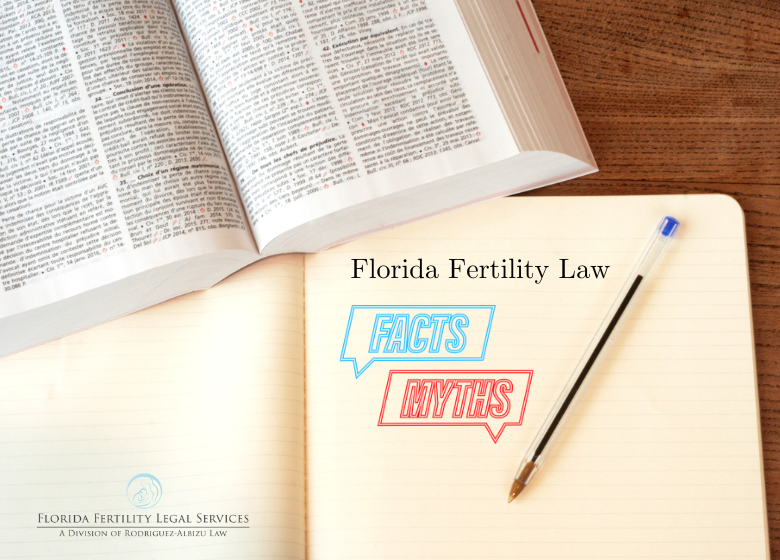The rising interest in fertility treatments in Florida traces back to a multitude of factors. First, the population of the Sunshine State is growing. For more than 50 years, the number of residents who call the peninsula home has increased. Second, the population is aging. At the same time, the 40-and-older set is living longer and delaying having babies. Third, environmental factors not only in the state but also throughout the country and the world have affected the ability of want-to-be parents to conceive.
“We are more aware of [infertility] as there tends to be less stigma associated with the issue,” Dr. Lucky Sekhon, a reproductive endocrinologist, said in a Romper article titled “Here Are 5 Reasons Why Infertility Is On The Rise, According To Experts.” “It’s [now] commonplace for men and women with infertility to discuss their struggle openly. It’s an issue that has been tackled by the mainstream media, with many well-known figures admitting to making use of fertility preservation techniques and fertility treatment.”
That said, many complexities and confusion surround the legal aspects of the practice area.
“As you embark on your fertility journey, understanding the legal landscape can be as essential as grasping the medical procedures,” Positive Steps Fertility states on its website. “Whether you’re considering surrogacy, navigating the complexities of cross-border reproductive services, or delving into the world of gamete donation, it is essential to understand the legal, ethical, and societal aspects…”
Keep reading for an overview that will simplify and clarify Florida’s fertility laws.
Understanding the landscape
There are several types of fertility treatments one can undergo if the natural method of getting pregnant fails or is not an option. Each is defined and explained below.
- In Vitro Fertilization (IVF): “In vitro fertilization, also called IVF, is a complex series of procedures that can lead to a pregnancy,” according to the Mayo Clinic. “It’s a treatment for infertility, a condition in which you can’t get pregnant after at least a year of trying for most couples. IVF also can be used to prevent passing on genetic problems to a child. During in vitro fertilization, mature eggs are collected from ovaries and fertilized by sperm in a lab. Then a procedure is done to place one or more of the fertilized eggs, called embryos, in a uterus, which is where babies develop. One full cycle of IVF takes about 2 to 3 weeks. Sometimes these steps are split into different parts and the process can take longer. In vitro fertilization is the most effective type of fertility treatment that involves the handling of eggs or embryos and sperm. Together, this group of treatments is called assisted reproductive technology.”
- Gestational surrogacy: Gestational surrogacy involves a carrier of the pregnancy, or surrogate, who is not genetically related to the fetus. Instead, the egg comes from the parent-to-be or from another unrelated donor. “The gestational surrogate carries the pregnancy and gives birth to the baby,” according to the Cleveland Clinic. “It’s the most common type of surrogacy. In most cases, at least one parent is genetically related to the child, but the carrier isn’t. This makes the process less legally complicated.” In Florida, there are statutes which legitimize the gestational surrogacy relationship making it an ideal State to have a child through surrogacy.
- Traditional surrogacy: Traditional surrogacy occurs when the carrier of the pregnancy, or surrogate, is genetically related to the fetus. In such cases, the egg comes from the carrier. “Then, as the child’s biological parent, they must surrender parental rights to the intended parents (or parent),” according to the Cleveland Clinic. “This type of surrogacy is illegal in many states and has many legal complications.”
- Sperm/Egg donation: Sperm and egg donation have several regulations in Florida. Further, donors typically go through an extensive medical screening covering family health history, personal health history and overall disease history. A psychological evaluation also is a part of the process.
The legal roles and rights of intended parents, gestational carriers, egg and sperm donors and all other relevant parties pertinent to fertility treatments should be intricately examined so there is a clear path leading to the birth of the baby and beyond.
“Florida is one of the few states that permits intended parents to establish parental status over a child without having to undertake a formal adoption process,” Florida Fertility Legal Services explains. “Florida’s gestational surrogacy statutes effectively protect the parental rights of intended parents, and through a gestational surrogacy agreement made pursuant to Florida law, intended parents can be assured that the gestational surrogate has no legal connection to the child. Gestational surrogacy agreements and pre-planned adoption agreements (which are commonly utilized by same-sex couples) are designed to ensure that all parties are protected. These contracts are intended to detail each respective party’s rights, obligations, intentions, and expectations, and are designed to cover all aspects of the anticipated pregnancy, including parental rights, reasonable reimbursements to the gestational surrogate, location of delivery, insurance, payment of medical expenses, future communication between the parties, and other provisions required by Florida law.”
In conclusion
Often the most exciting time in one’s life is becoming a parent. No matter how it happens, having a baby is a special moment that should be cherished forever. Navigating the legal ins and outs of the journey to becoming a father or a mother can be tricky, which is why anybody pursuing fertility treatment is encouraged to seek professional advice for his or her specific situation to help demystify Florida’s fertility laws.

